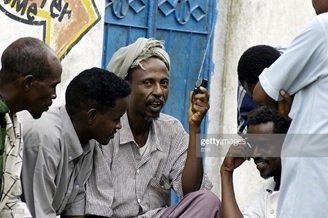By Abdi Yusuf
“Great journalism will always attract readers. The words, pictures and graphics that are the stuff of journalism have to be brilliantly packaged; they must feed the mind and move the heart”. Rupert Murdoch
I have been a diehard fan of the BBC Somali Service for a long time, but I am about to change my mind. In this piece, I will talk about how the BBC Somali service has one time won the hearts and minds of most of Somali speaking societies in Eastern Africa, and how now the empire, is about to fall.
The BBC Somali service was established in 1957, and at one time was the only Somali-medium radio for Somali people. BBC is a British Broadcasting Corporation, and thanks to the British government for investing in it in order to reach millions of unreached Somali people. Many Somali people consider the BBC Somali services as their property, because the radio brings the most updated reliable and accurate information about Somalia.
I do vividly remember how Somali people were so addictive to the BBC Somali Service broadcasts. Whenever the airing time was about to begin, people would stop all activities and grab their radios. Even though the time slots were too short, a thirty-minute radio programme was well enough for comprehensive conversing.

To emphasize, BBC Somali service once was the production engine for the Somali language, and it profoundly contributed enriching the language by adding many new words; Somali language was explosively growing in the 80s; that time senior BBC journalists expanded the Somali dictionary by adding newly coined words. I recall, when former BBC journalist, Abdullahi Haji, said in an interview that he had created a well-known Somali word “Dayax Gacmeed” for the satellite; now this word is so popular among Somalis. Other journalists too added other important words such as “Qaramada Midoobay”, the United Nations.
In addition to that there was a well-known Somali phrase “BBC noo daara” meaning tune BBC radio for us. This shows how simply the BBC was part of people’s lives regardless of their needs for news, entertainment, religious lessons, interviews and debates. Moreover, BBC was the real timepiece for many Somali people, for example someone may say “let us meet when afternoon programme ends, or someone else could brag saying my wristwatch is as accurate as the BBC. BBC airing times were the times that Somali people traditionally set their appointments.
In contrast, over the past few years, most of senior journalists retired from BBC Somali service, and suitable replacement was not so far made, and this is the time when I argue the quality started fading gradually. BBC Somali service hired new junior staff members who either had less experience in broadcasting media or were not fluent enough in the Somali language, though not all of them but some.
In the first place, the radio broadcasting techniques and expertise are different from that of other forms media; one should possess ample knowledge of the core broadcasting language, particularly by being excellent and proficient in speaking and reading the Somali language. Likewise, it does not matter the nationality or origin of the news reader or producer but quality is the problem; someone from Garissa could be more fluent in Somali than Someone from Somalia.
Another problem worth mentioning is that BBC Somali service partially relocated to Nairobi, Kenya, and employed dozens of staff members from North Eastern region of Kenya; due to work permit problems many capable and senior Somali journalists failed to apply for BBC jobs in Nairobi because of the particulars of their passports. Nowadays, BBC Somali service is struggling with repeated errors; be it typing errors, content errors, pronunciation errors and even sometimes technical errors. BBC website constantly displays awfully translated contents, and contents that are not either double-checked or edited at all. A friend of mine called me one time, and said BBC Somali turned out to be like our local radios; too many errors and too many excuses.
Lack of proper editing is another major problem facing BBC Somali service; most of these problems relate to translation; as I assume most of news pieces of BBC Somali are translated from BBC News English, but translation itself requires outstanding experience; at times you will be wonderstruck to see how a journalist translates literally from English to Somali with meaningless, senseless and difficult to understand language. This problem is always seen on the website of the BBC Somali services.
Another big problem is hiring journalists who lack basic schooling system or International geography. To correctly pronounce names of people, cities, and places are another puzzle for BBC staff. Despite the energetic, young journalists working at the BBC Somali Service, there is still the need of hiring journalists who are highly proficient in the Somali language.
Abdi Yusuf
Email: [email protected]
We welcome the submission of all articles for possible publication on WardheerNews.com. WardheerNews will only consider articles sent exclusively. Please email your article today . Opinions expressed in this article are those of the author and do not necessarily reflect the views of WardheerNews.
WardheerNew’s tolerance platform is engaging with diversity of opinion, political ideology and self-expression. Tolerance is a necessary ingredient for creativity and civility.Tolerance fuels tenacity and audacity.
WardheerNews waxay tixgelin gaara siinaysaa maqaaladaha sida gaarka ah loogu soo diro ee aan lagu daabicin goobo kale. Maqaalkani wuxuu ka turjumayaa aragtida Qoraaga loomana fasiran karo tan WardheerNews.
Copyright © 2024 WardheerNews, All rights reserved


